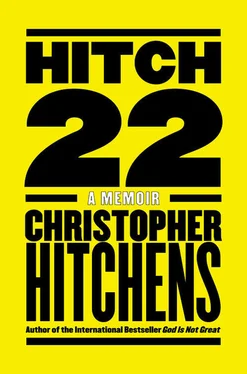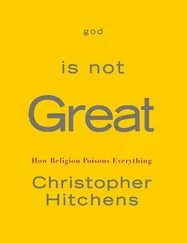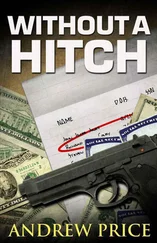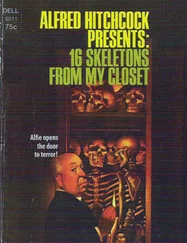Strangely, though, the matter of his age was also the only thing in which I ever caught him out in a petty dishonesty. He used to tell us that he had been born in 1912. My brother, Peter, and I were both amateur numismatists in boyhood, and these were the days when hoop-sized pennies from the Victorian and Edwardian era could still turn up in your small change. If we found a 1912 coin, we would show him, and then proudly hoard and sometimes even mount and display it. It was somehow deflating to discover—as he must have known we would—that he had been born in 1909. I still cannot be sure why he practiced this uncharacteristic deception: conceivably to attenuate the difference in years between himself and Yvonne. But she could not possibly have been fooled, as his sons pointlessly were.
The durability of this “Upstairs, Downstairs” ethos is remarkable in point of both time and place. I was to become very close to Jessica Mitford, who was almost a sorceress in her ability to use her upper-class skills for American leftist purposes. Told once by a white Southerner at a cocktail party that “it don’t seem possible” that school integration could work, she icily replied: “To me it do!” and turned on her heel leaving him wilted like a salted snail. During the McCarthy period, when her fellow Communists became very timorous, she discovered that the Oakland branch was advising its black members, when turning up for a meeting at the home of a well-to-do comrade, to avoid FBI attention by pretending to be house-servants and using the back door. “Well, I mean to say, I sailed right round and told them I thought that was an absolute stinker .”
I was to get over my speech impediment and now find that I can speak perfectly contentedly, often or preferably without interruption, for hours at a time. Let this be an inspiration to all those who contend with childhood disabilities.
In an excellent instance of the “revenge is sour” rule, I was to meet Smith again many years later. It was on the London underground one morning. He was an abject tramp, carrying two heavy bags of rotting old newspapers and declaiming aloud to the unheeding world around him. He chose to sit down just next to me. I pondered for a moment and couldn’t resist: “E.A.M. Smith!” I said into his ear. He jumped like a pea on a hot shovel. “How do you know my name?” Cruelly I replied: “We’ve had our eye on you for some time.” His face betrayed the animal fear of the hopeless paranoid, and so I couldn’t bear to continue. “It’s all right. I just remember you from school. It’s Hitchens here.” He said dully: “I remember you. You were a sinner. I used to pray for you.” That seemed about right.
This book, like the several movies that bear its name, has become a synonym for old-school-tie values and general mushy sentiment about the dear old days. In fact, Mr. Chipping’s lovely wife, Kathie, is a socialist and a feminist who wins all hearts; she forces him to be honest about homosexual play among the boys; he ends up sympathizing with railway strikers, opposing the British Empire in the Boer War and insisting on decent respect for Germans after 1914.
At about this time I read Catch-22 and was thrilled when Yossarian, confronted by Major Danby’s version of the old official trick-question “Suppose everybody felt that way?” replied “Then I’d certainly be a damned fool to feel any other way, wouldn’t I?”
From King Lear : “Thou rascal beadle, hold thy bloody hand! Why dost thou lash that whore?… Thou hotly lust’st to use her in that kind, for which thou whip’st her.” This is why, whenever I hear some bigmouth in Washington or the Christian heartland banging on about the evils of sodomy or whatever, I mentally enter his name in my notebook and contentedly set my watch. Sooner rather than later, he will be discovered down on his weary and well-worn old knees in some dreary motel or latrine, with an expired Visa card, having tried to pay well over the odds to be peed upon by some Apache transvestite.
It was Guy, now dead for some time but in his later years an amazingly successful seducer of girls, who first insisted that I read the Greek-classical novels of Mary Renault. If this was all he had done for me, I would still be hoarsely grateful to him. While other boys plowed their way across the puerile yet toilsome pages of Narnia, or sank themselves into the costive innards of Middle Earth, I was following the thread of Ariadne and the tracks of Alexander. The King Must Die; The Bull from the Sea : Athens has seldom trumped Jerusalem with greater style or panache.
“I think you are going finally to displace me as the most hated man in American life. And of course that position is bearable only if one is number one. To be the second most hated man in the picture will probably prove to be a little like working behind a mule for years…” Norman Mailer to William F. Buckley, 20 April 1965.
I can’t say that we didn’t have to deal with our own cognitive dissonance. The British working class was for the most part entirely unmoved by our exertions. I do remember a demonstration, assiduously prepared for by mass factory-gate leafleting, to which exactly no workers showed up. My theoretician friend David Rosenberg, confronting this daunting result, said to me: “It rather confirms our analysis that the union bureaucrats can no longer truly mobilize their rank and file.” True enough as far as it went: but also true that those who bang their heads against history’s wall had better be equipped with some kind of a theoretical crash helmet. It was to take me some time to doff my own.
I visited CLR on his deathbed in London—on the corner of Shakespeare Avenue and Railton Road—in the late 1980s. He was still quite lucid but hard of hearing. I asked him to inscribe a new edition of Black Jacobins and, when he inquired what I’d like him to put on the flyleaf, simply suggested that he use the old Left salutation and put “yours fraternally.” He fixed me with a piercing look. “I do not,” he said sternly, “believe in eternity.” For a moment I was confused and then thought how apt it was that, in mishearing me but repudiating the afterlife, CLR could get fraternity and eternity entangled with one another.
I was later to find that George Orwell, invited by Philip Larkin in 1941 to address a joint meeting of the Labour Club and the English Club, had been given an inedible dinner because Larkin had earlier splurged all the hospitality fund on an ill-advised blowout for Dylan Thomas.
His very name seemed to exude authority: Old Testament conjoined to the brilliant but haunted capital. The only rival in nomenclature I can call to mind is my friend Pascal Bruckner.
It’s sobering and depressing to reflect that McGuire, who had mainly been influenced by the war in the Middle East the preceding year, is now one of those bards who still likes to sing about the end of days because he is a millennialist and fundamentalist Christian. But by then, I had come to prefer even the hard-line militant verses of Phil Ochs to the more lenient Bob Dylan.
I would never have guessed at the time that conscription would be abolished by Richard Nixon, and still less that he would appoint Milton Friedman and Alan Greenspan to the Presidential Commission on the subject. The two right-wing libertarians condemned the draft as “involuntary servitude.” Today, almost the only people who call for the return of the system are collectivists and liberals.
Читать дальше











